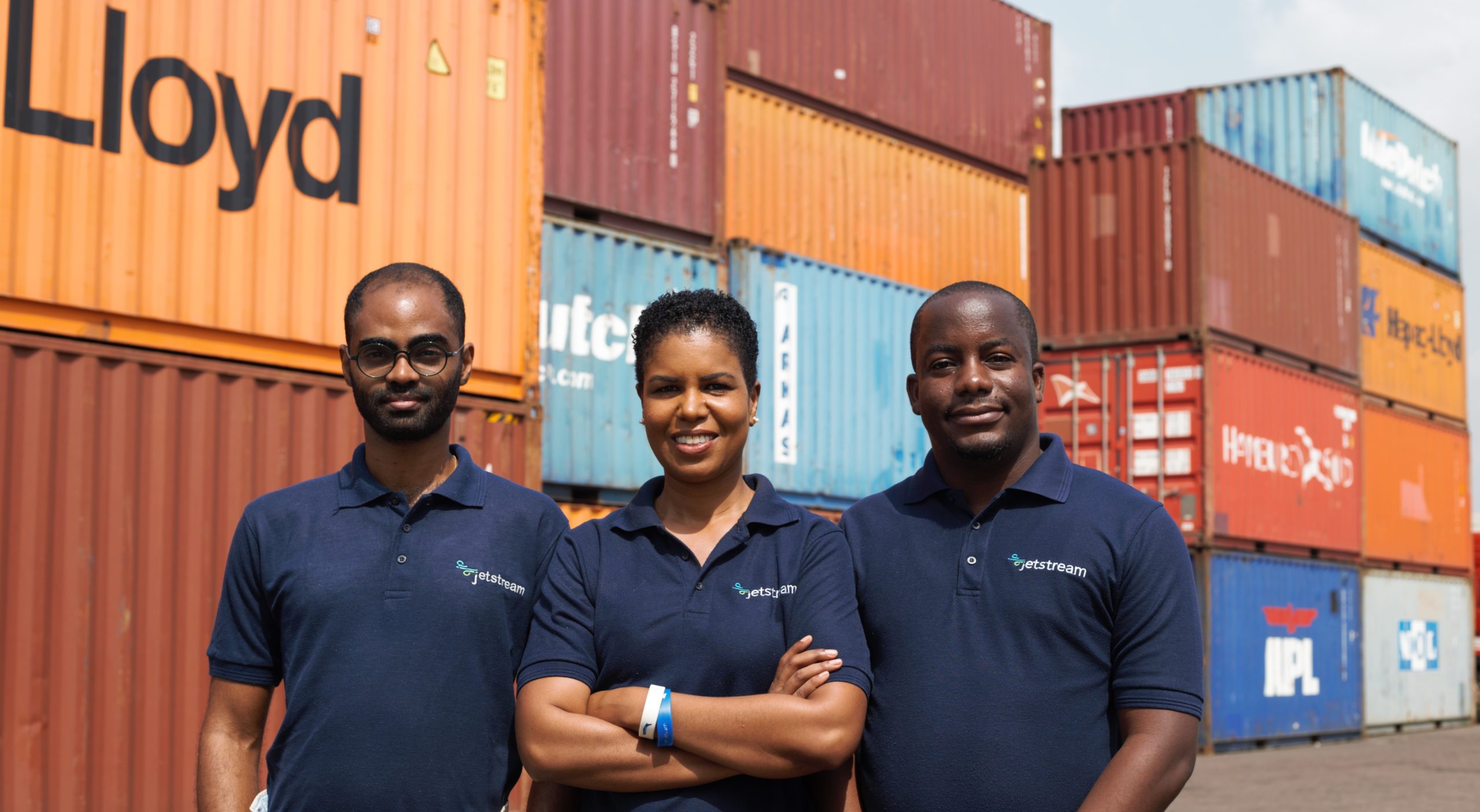In addition to freight forwarding, the 4-year-old company wants to be a one-stop shop that offers hard-to-get export loans to small exporters who receive international orders they cannot finance. By owning more of the export process for small customers and enterprises alike, Jetstream Africa hopes to grow faster and become more attractive to investors ahead of its series A.
Miishe Addy, Jetstream Africa co-founder and chief executive, simply wanted to help small exporters and importers in Ghana send cargo abroad. But after her company commenced operations in 2019, Addy and her co-founder, Solomon Torgbor, who had led a team in the customs unit of the global shipping liner, Maersk, quickly realized that growing a logistics business in Africa meant becoming the financial partner for her customers.
For Jetstream Africa, it meant supporting small businesses with a cash advance of between $17,000 to $100,000 in asset-backed loans. The credit facility helps small exporters complete orders as international demand for quality African products grows.
When Jetstream started operations in 2019, the hypothesis was that by grouping cargo together, they could reduce the rates each cargo owner had to pay. Miishe’s team thought that doing this would make it easier for SMEs in Ghana to ship anywhere they wanted to around the world. “We were retaining customers [but] their topline wasn’t growing and ours wasn’t either,” Addy told TechCabal. Despite Jetstream’s aggregation, it was still too expensive to sell or buy goods internationally. So the company’s early assumption that simply bundling cargo into container-sized units would reduce costs and spur export growth had to be modified after months of experimentation. “What we discovered is that it doesn’t matter how much you discount freight. If customers do not have enough liquidity to buy and sell goods, the discount is irrelevant,” Addy said in a call with TechCabal.
Unlike other regions, African exporters are forced to take more risks when they sell goods to international buyers. “Folks who are producing goods on the continent probably have the worst payment terms of any trading parties in the world. If they’re selling cargo they don’t get paid until it gets to the buyer. If they’re buying cargo they have to pay a front,” Addy said. Since the cargo moves across great distances and are been imported or exported to people who do not know each other in person. Both parties need to trust that the goods are been shipped, contain what was ordered, and that the payment will arrive when due.
African banks hesitate to offer loans to SMEs because the typical SME customer in Africa has far fewer assets than what banks are willing to accept as collateral.
Trade finance—an umbrella term for the different financial arrangements that are used to source for and pay short-term trade loans—is one of the oldest banking functions. According to the World Trade Organisation, as much as 90% of global trade depends on trade financing. But in Africa, the gap between the demand for and supply of trade financing continues to widen. A 2019 estimate by the African Development Bank (AfDB) put the gap at $81.8 billion, analysts say it may have now reached $120 billion a year. A joint study released in 2022 by the WTO and the International Finance Corporation (IFC) on trade finance gaps in the four largest economies of the Economic Community of West African States (ECOWAS) — Côte d’Ivoire, Ghana, Nigeria, and Senegal — claimed that raising the share of trade supported by trade finance in the four countries to the average African level of 40% would result in an extra 8% in trade flows annually. In ten years, the gains would reach $140 billion in additional trade.
Export/import logistics runs on several parallel layers. There are the practical realities of moving a shipment from its point of origin to the port, dealing with customs rules, and warehousing. There is the vagaries of dealing with shipping lines. And the exporter needs the financial muscle to pull all of this off. Said Addy: “There is no type of supply chain that is as complex as a cross-border supply chain where those three things need to not only go well, but they have to be precisely synchronized in order for a shipment to get to B.”
What is new about Jetstream’s model is that the company wants to bring as many layers in the export/import process as possible under one umbrella. It first started to do this in Ghana when it acquired the licence to handle customs formalities and coordinate with shipping carriers. The industry term is clearing and forwarding. Sales from clearing and forwarding is a small chunk of Jetstream’s revenue, but gross margins from the segment can be as high as 90%, Miishe confided. For customers, taking Jetstream’s money means they do not have to wait for long to get paid, and can consequently take more orders from international customers. Due to wild fluctuations in the naira’s value relative to the dollar, Jetstream does not offer its financing product in Nigeria.
Adding credit to the core business of moving goods across borders for small businesses and a growing cohort of big enterprise customers means taking on more risk. But since the company is the freight forwarder and customs agent in both countries (it recently acquired a clearing and forwarding licence in Nigeria) it also gives Jetstream Africa the opportunity to hedge its risks. Something that standalone trade financiers and merchant banks struggle with. Whenever Miishe’s company lends (typically only up to 30% of the amount required), they also get to hold 100% of the inventory in leased warehouses in addition to full control over export documents. In the case of exports, buyers make payment to Jetstream Africa which is then disbursed to the seller less loan amount, interest, and fees.
The original goal of the business remained the same. By helping small businesses buy or sell internationally, Miishe and Torgbor hoped to build a venture-scale business. But to do that they needed to take on even more responsibilities. So Jetstream had to become both a freight forwarder and financier. In mid-2021 Jetstream announced a $1 million trade finance program after raising $3 million in seed funding. According to Techpoint, the trade finance program has since reached $9 million. Jetstream Africa which disclosed an additional $13 million pre-series A funding in January 2023 hopes to raise its first growth-stage financing in 2024.





















